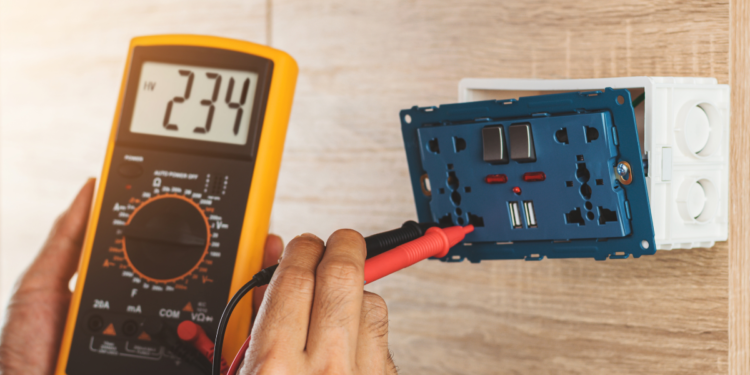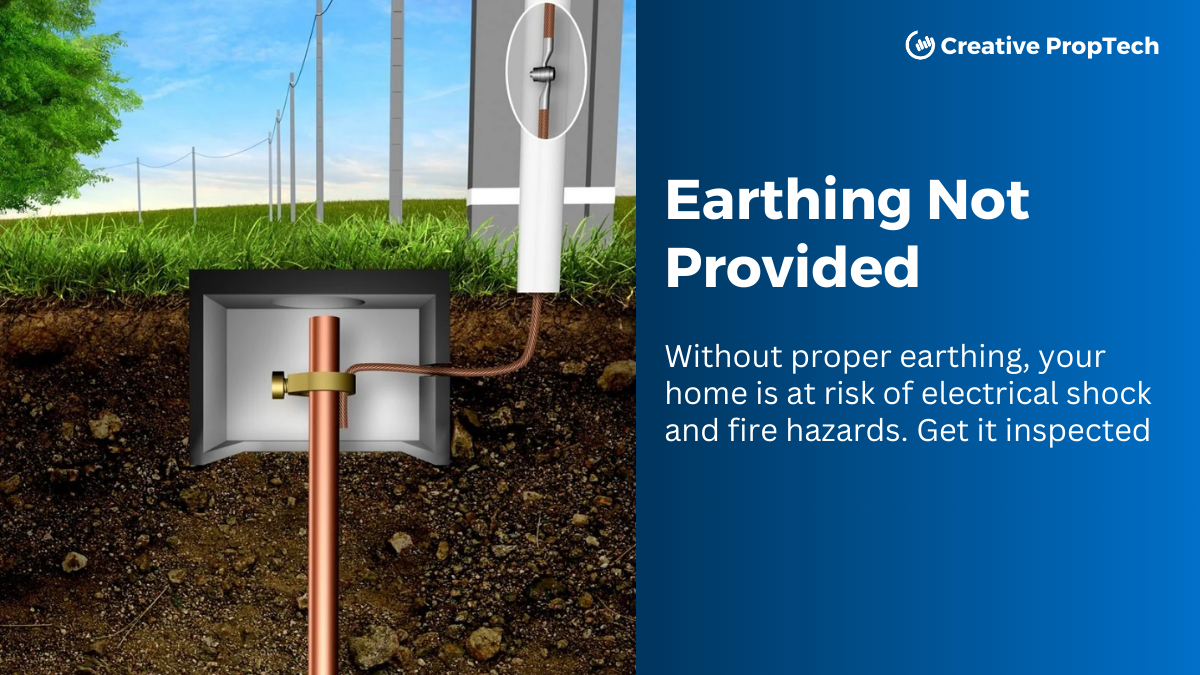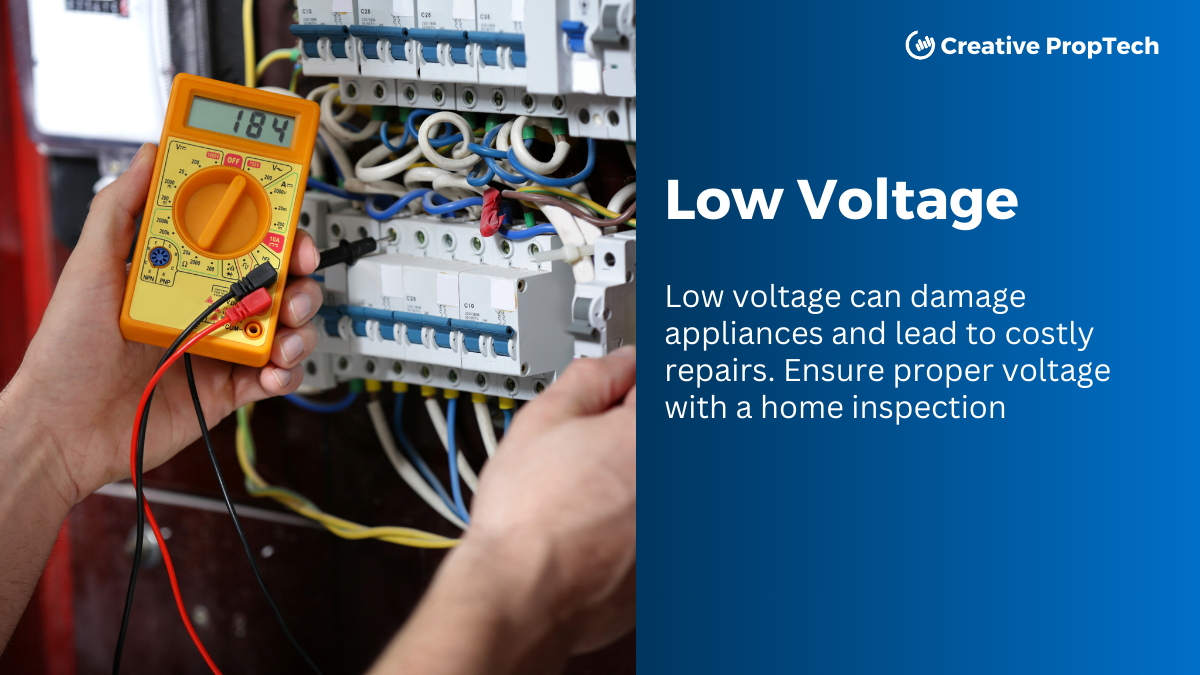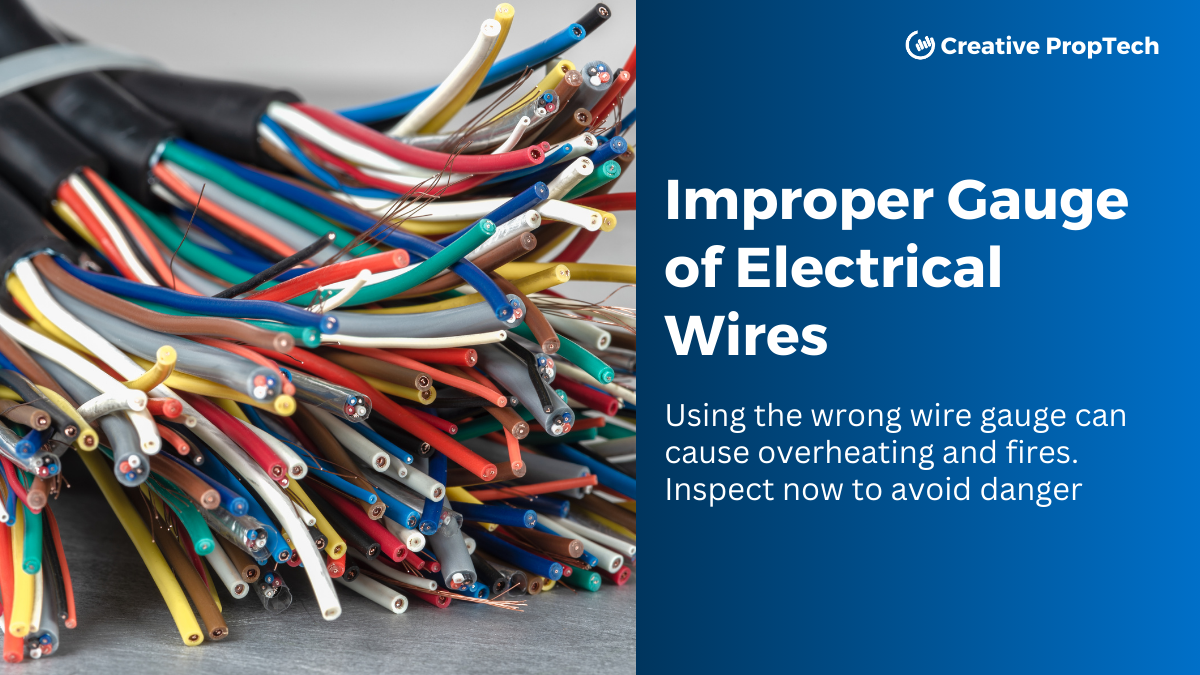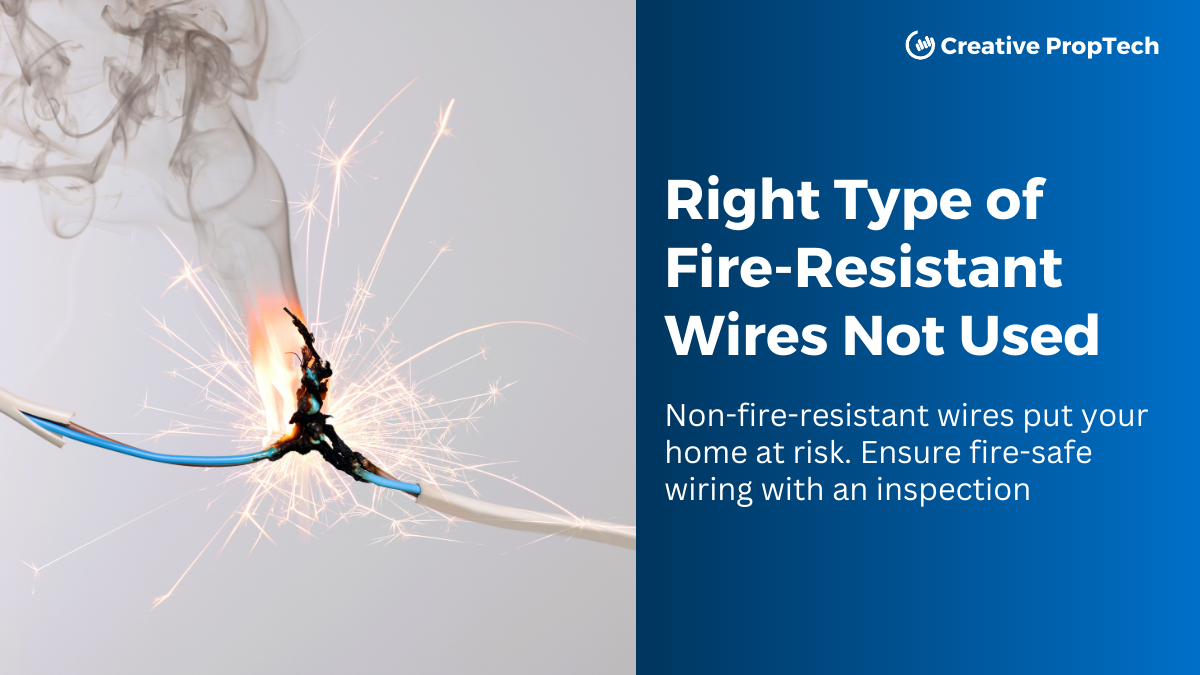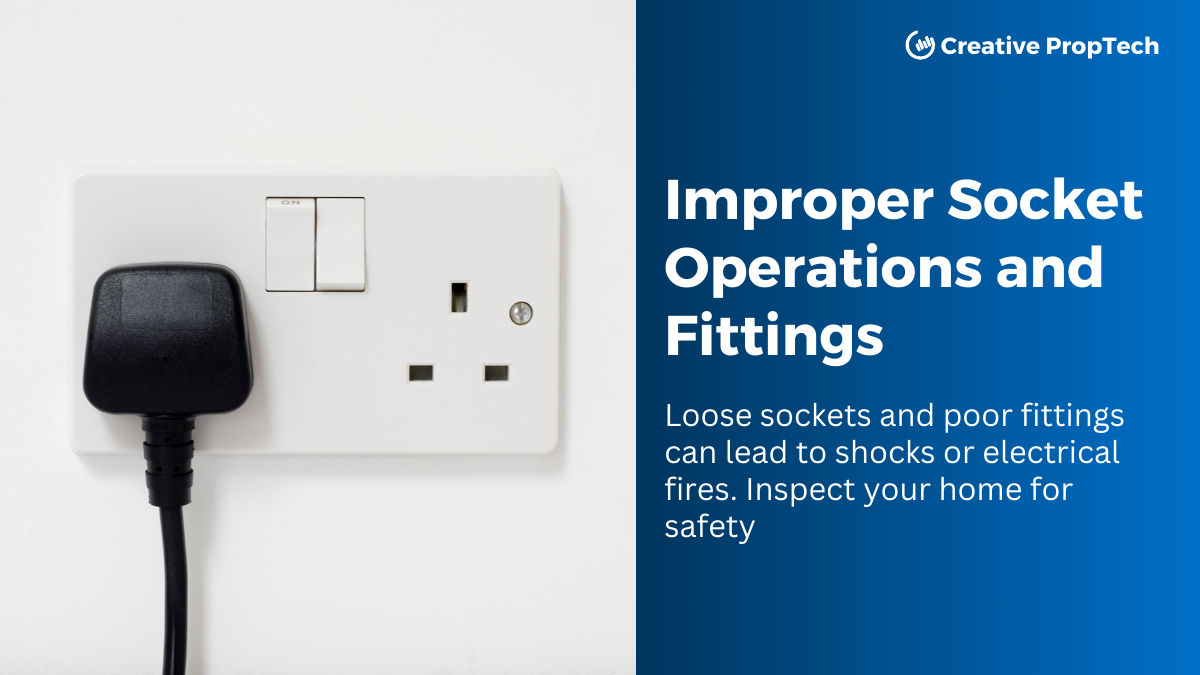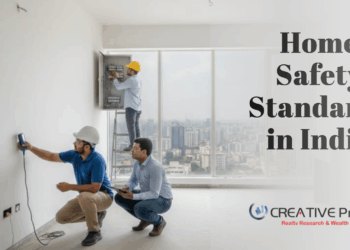When buying a home, ensuring that all electrical systems are safe and functional is crucial.
Electrical issues not only pose a safety hazard but can also result in expensive repairs if not identified early.
During home inspections, a variety of electrical problems are commonly found, many of which are not visible to the untrained eye.
In this blog, we’ll discuss five of the most common electrical issues found during home inspections, based on real home inspection reports.
Earthing Not Provided
One of the most critical safety features in any electrical system is earthing (or grounding).
Earthing provides a direct path for electrical current to safely dissipate into the earth in the event of a short circuit or electrical fault.
Without proper earthing, there’s a risk of electric shock, damage to appliances, or even fire.
In many home inspections, it’s found that earthing is either not provided or inadequately done, especially in older homes.
This can pose a serious danger to occupants, particularly in areas where appliances like water heaters or washing machines are used frequently.
Proper earthing ensures that excess electrical charges are safely grounded, reducing the risk of electric shock.
A home inspection will check for proper earthing throughout the home, identifying any areas that may lack this crucial safety feature.
If earthing is missing or improperly installed, it’s essential to have a licensed electrician address the issue immediately to ensure the safety of the home’s electrical system.
Low Voltage
Low voltage issues are another common electrical problem found during home inspections.
Homes with low voltage can experience frequent power fluctuations, leading to appliances malfunctioning or not working efficiently.
Low voltage can also cause lights to flicker or dim, which may seem like a minor inconvenience but could signal a deeper issue in the electrical system.
This problem is often caused by poor-quality wiring, overloaded circuits, or an insufficient power supply from the main grid.
Low voltage can strain your electrical appliances, causing them to wear out faster and, in some cases, even result in permanent damage.
A professional home inspector will measure the voltage levels in different parts of the house to ensure that they are within the recommended range.
If low voltage is detected, it may require upgrading the wiring, installing new circuits, or addressing issues with the main power supply to the home.
Improper Gauge of Electrical Wires
The gauge of electrical wire refers to its thickness, and choosing the correct gauge is essential for the safe transmission of electricity.
Using wires with an improper gauge, either too thin or too thick, can lead to overheating, electrical fires, or malfunctioning appliances.
In many home inspections, it’s discovered that the wrong gauge of wire has been used, particularly in older homes where electrical systems were not designed for modern appliances.
For example, high-powered appliances like air conditioners or water heaters require thicker wires to handle the load, while smaller appliances can function with thinner wires.
If an incorrect wire gauge is used, it can cause the wire to overheat, increasing the risk of fire.
Home inspectors check the wiring in key areas like the kitchen, bathroom, and utility areas to ensure the correct gauge is being used for each appliance.
If issues are found, replacing the wires with the correct gauge is necessary to prevent overheating and ensure the long-term safety of the electrical system.
Right Type of Fire-Resistant Wires Not Used
Fire-resistant wires are an essential safety feature in any home, especially in high-risk areas like the kitchen or utility rooms where heavy appliances are used.
In many home inspections, it’s found that builders or contractors have used non-fire-resistant wires, putting the home at risk for electrical fires.
Fire-resistant wires are designed to withstand high temperatures without melting or catching fire, providing an added layer of safety in case of an electrical overload.
They are particularly important in homes where appliances like ovens, water heaters, or air conditioners are used regularly, as these appliances draw a lot of power and can overheat the wiring if not properly managed.
During a home inspection, professionals will check if the correct fire-resistant wiring has been used in key areas of the home.
If non-fire-resistant wires are found, they should be replaced immediately to reduce the risk of electrical fires.
Improper Socket Operations and Fittings
Sockets and switches are used daily, but many homeowners overlook their importance when it comes to electrical safety.
Improper socket operations and loose fittings are common issues found during home inspections, and they can lead to electrical arcing, short circuits, or even fires if not addressed.
Loose sockets, poorly fitted switchboards, or cracked faceplates can expose wiring and lead to electrical shocks or short circuits.
These problems are particularly dangerous in homes with children, who may accidentally touch exposed wires.
Additionally, poorly installed sockets may not provide a reliable connection for appliances, causing them to overheat or malfunction.
A home inspection will assess the condition of all sockets and switches throughout the house, ensuring that they are properly installed, securely fitted, and in good working condition.
If any sockets are found to be loose or damaged, it’s essential to have them repaired or replaced to avoid safety hazards.
Conclusion
Electrical issues are some of the most dangerous problems a homeowner can face, but they are often hidden behind walls or in areas that aren’t easily accessible.
By conducting a thorough home inspection, you can identify these common electrical problems early and take steps to address them before they turn into major safety hazards.
From ensuring proper earthing and voltage levels to checking the gauge and fire-resistance of wires, a professional home inspection can save you from expensive repairs and protect the safety of your family.
If you’re planning to buy a new home, or even if you’ve been living in your current home for years, investing in a home inspection is a smart decision.
It ensures that your home’s electrical systems are up to standard and reduces the risk of unexpected issues in the future.
Make sure to choose a reputable inspection service, like Creative PropTech, that has the experience and expertise to thoroughly inspect your home and provide a detailed report.
This way, you can move forward with confidence, knowing that your home is safe and free from hidden electrical dangers.


